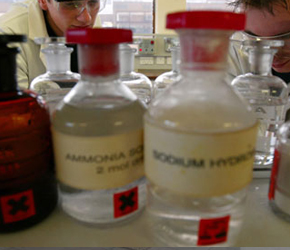Degree in Chemistry, Subject and Types
Chemistry is a very important subject because it helps us know more about the constituents of matter, the properties of matter and how they interact to form new substances. Chemistry is a broad course with several subjects and types. Therefore, anyone interested in studying chemistry has to be well acquainted with these subjects and types so as to know the areas where he/she can perform well. In colleges, students are taught several subjects in chemistry.
Some of these subjects include:
- General chemistry
- Physical chemistry
- Inorganic chemistry
- Biochemistry
- Organic chemistry and
- Analytical chemistry
The essence of making these subjects known to students is to make them understand their requirements and then decide on the one to specialize on. Students who do not want to limit their scope usually prefer taking general chemistry. No matter what your area of specialization is, a degree in chemistry will help you gain more opportunities for high paying jobs in different kinds of industries. Most individuals with a degree in chemistry earn more than their colleagues in the liberal arts fields.
General Chemistry
Topics to cover in general chemistry include: chemical reactions, chemical bonding, structure of molecules, the periodic table, acids and alkalis and many other important laws and theories. The topics in general chemistry provide the basic foundation that is needed for the students to understand other branches of chemistry.
Organic Chemistry
Organic chemistry is included in the curriculum to make students understand the mechanisms, syntheses and spectroscopy of organic compounds. The organic compounds are basically those made of carbon and hydrocarbons. Graduates of organic chemistry can work as sales representatives for chemical companies and as researchers in science laboratories.
Physical Chemistry
In physical chemistry, the students study topics such as states of matter, thermodynamics, quantum mechanics, electrochemistry and phase diagrams. According to the American chemist, Gilbert Newton Lewis, physical chemistry is anything that triggers curiosity. It is interesting to note that Gilbert Newton Lewis was the man who discovered the covalent bond. Lewis could be right since physical chemists are the ones in charge of answering questions such as how the active state of protein is formed and how biomolecular motors operate.
Analytical Chemistry
Analytical chemists deal with numbers, computation of facts and figures and detailed presentation of their results. Its major concern is to know what matter is and how they occupy the universe. Analytical chemists work with computer models and statistics. They do all this to ensure that the quality of food and water we take is maintained at high standards. They also contribute in making the environment sustainable and in helping doctors to diagnose diseases.
Inorganic Chemistry
Subjects to learn in inorganic chemistry include: structure of inorganic compounds, bonds of inorganic compounds, orbital theory of molecules, spectroscopy, organometallics, coordination compounds and group theory. Compounds treated in inorganic chemistry are ionic compounds. These compounds are made up of cations and anions, which are joined together by the bond known as ionic bonding.
Biochemistry
Topics in biochemistry include amino acids, proteins, polymers, enzymes, lipids, metabolic pathways and nucleic acids. In summary, biochemistry is a field that is concerned with using science to explain the chemical structure and composition of living things.

